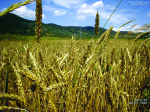 Over the last 20 years New Zealanders have developed an obsession with coffee drinking.
Over the last 20 years New Zealanders have developed an obsession with coffee drinking.
New coffee outlets are springing up in café’s, home stores’, petrol stations, office blocks, garden centers, libraries, container popup stores, along with mobile coffee carts. Whether we sit in a café or take it out, our love affair with coffee just keeps on growing.
To study this ‘The Wild Bean Café Kiwi Consensus’ 1 was commissioned by Wild Bean Café who claim sales of around 11 million cups of coffee per year and the title of being the largest café retailer of Fairtrade certified coffee in NZ.
The survey looked at the coffee consumption of 1063 customers in December 2019. Their sample was taken from a wide range of age groups, ethnicities and regions throughout New Zealand. This revealed much about our coffee drinking habits.
Main findings:
- More than 70% of customers studied drank at least 1 coffee per day with 24% consuming 3 or more cups/day.
- A flat white proved the most popular coffee with 31% of those studied, with second place (18%) being shared equally by mocha and cappuccino.
- Wellington was the latte capital with 23% ordering these compared with other NZ cities.
- Twice as many men ordered a long black coffee (16%) compared to women (8%).
- Twice as many women ordered a mocha (24%) as men (12%).
During the Covid-19 lockdown when people were required to stay at home the online sales of coffee machines, coffee pods and whipped instant coffee sachets increased and for many New Zealanders coffee making became an art form and important way to relieve stress 2
The art of coffee preparation
Coffee is the liquid extracted from the coffee beans not the method of extraction.3
There are many ways to prepare coffee. From plunger coffee, pour over coffee, stove top percolator coffee, drip coffee makers with filters and much more.
Espresso coffee can be made from regular coffee beans provided they are finely ground.
The average size of a cup of coffee is 227ml (8oz) whereas one shot of espresso is 30mls
Brewing coffee takes time requiring hot water to filter or drip through coffee grinds whereas an expresso machine pressurizes and shoots near-boiling water through finely ground coffee beans packed into cakes. This creates a complex, aromatic, caffeine-packed shot of coffee within 30 seconds. The speed of this process retains the flavour of the coffee oils which are often lost in filtered coffee.
Coffee names
No longer just black or white, coffee names are defined by how the coffee is made and the drink prepared. These same names are being carried through to the whipped instant coffee market.
Here are some of the main ones:
| Flat white | Steamed milk is added to an espresso |
| Latté | Similar to a Flat white only bigger |
| Cappuccino: | An espresso-based coffee with steamed milk foam |
| flavoured with cinnamon or chocolate | |
| Mocha or | |
| Mochaccino; | An espresso coffee with chocolate and steamed milk |
| Macchiato: | An espresso topped with foamed milk or cream. |
| Macchiato Latté | An espresso is added to milk, so this carries more foam |
| than a standard latté |
The growth of coffee concoctions and impact on our diet
One of the biggest trends of note over the last 2-3 years has been the rise in non-dairy, plant-based milks 4 We now have rice, soy, oat, almond and coconut milk to add to the coffee recipes listed above. This movement has not only been fuelled by the growing interest in sustainability and the plant-based diet, but also has been driven by flavour preference, the desire to try something different and the incidence of allergies and intolerances in the community.
With coffee now potentially making a major contribution of milk to our diet it is important to see the effect that these milks may be having on our nutritional intake each day. In particular the protein and calcium contribution to our diet, important for the building of strong muscles and bones. Across these milks Trim® milk would contribute the least amount of energy and fat and coconut milk would contribute the most.
While adults can replace cow’s milk with plant-based milks the protein levels of these milks (except for soy) are generally lower. (See Table 1). So, if you are buying non-dairy products for use at home, read the food label and choose those that are fortified with extra calcium and/or protein.
NB these plant -based milks are not suitable for young children.
Table 1 A comparison of the nutritional value of different milks
| Milk | Protein | Fat | Carbohydrate | Energy | Calcium | Sodium |
| 250ml cup | g | g | g | kJ/Kcals | mg | mg |
| Cow’s milk Calci Trim® | 14.8 | 0.5 | 12 | 480/114 | 475 | 115 |
| Cow’s milk Whole | 8.7 | 8.7 | 15.4 | 722/172 | 267 | 90 |
| Cow’s milk Trim® | 9.3 | 0.26 | 12.4 | 369/88 | 306 | 102 |
| Soy milk fat reduced | 8.2 | 0.25 | 19.3 | 540/129 | 350 | 131 |
| Rice Milk + protein | 3.9 | 2.8 | 14.7 | 417/99 | 315 | 144 |
| Oat Milk + calcium | 3.9 | 5.3 | 16.9 | 576/137 | 325 | 151 |
| Almond Milk | 1.6 | 7 | 5.1 | 375/89 | 177 | 153 |
| Coconut Milk | 4 | 40.2 | 5.1 | 1647/393 | 10.2 | 51 |
Ref FoodWorks 5
It is also important to note the contributions that these coffee concoctions can be making to our energy, fat, sugar and salt intake. This may be of importance to people concerned about their weight, blood sugar, blood pressure or cholesterol levels, especially if they are drinking more than 1-2 coffees per day.
For information regarding the effect of the caffeine in coffee on sleep and athletic performance, see further reading below.
Comparing the nutritional content of beverages such as coffee is not an easy feat because coffees made in cafés come in different quantities, size of cups, strengths and combinations. Instant coffee sachets also vary considerably in the volume of coffee that they make, with those listed in Table 2 indicating volumes on their labels ranging from 166-200mls once water has been added.
With these things in mind for the comparative table that follows, freshly made coffee has been compared according to a double shot serve and all coffee has been compared on 100mls rather than per average cup.
Table 2: A nutritional comparison of various espresso and instant coffees.
| Coffee | Energy | Protein | Fat | Sat. Fat | Carbohydrate | Sugar | Sodium |
| 100mls | kJ/Kcals | g | g | g | g | g | mg |
| Long black | 15/3.7 | 0.6 | 0.11 | 0.04 | 0 | 0 | 2.6 |
| Flat white-Skim | 105/25 | 2.8 | 0.11 | 0.04 | 3.2 | 3.2 | 24 |
| Flat white-Whole milk | 187/44 | 2.7 | 2.2 | 1.3 | 3.6 | 3.6 | 22.2 |
| Flat white- Soy | 145/34 | 2.6 | 1.2 | 0.22 | 2.9 | 1.4 | 30 |
| Flat white- Instant (N) | 170/41 | <1 | 1.8 | 1.6 | 6.4 | 3.5 | 70 |
| Latte – Skim | 105/25 | 2.8 | 0.11 | 0.04 | 3.2 | 3.2 | 24 |
| Latte -Whole milk | 187/44 | 2.7 | 2.2 | 1.3 | 3.6 | 3.6 | 22.2 |
| Latte – Instant (SB) | 130/31 | 1.5 | 1.4 | 0.9 | 3 | 2.7 | 18 |
| Cappaccino -Skim | 101/24 | 2.6 | 0.16 | 0.06 | 3 | 3 | 21.2 |
| Cappaccino -Whole milk | 170/40 | 2.5 | 1.9 | 1.1 | 3.4 | 3.4 | 19.6 |
| Cappuccino- Rice milk | 209/49 | 0.6 | 0.8 | 0.1 | 9.9 | 3.1 | 47.9 |
| Cappaccino -Instant (SB) | 115/28 | 1.3 | 1 | 0.6 | 3 | 2.4 | 16 |
| Mochaccino– Skim milk | 201/48 | 3.3 | 0.3 | 0.17 | 8.2 | 8.1 | 38 |
| Mochaccino-Whole milk | 304/72 | 3.2 | 2.9 | 1.8 | 8.7 | 8.6 | 35.8 |
| Mochaccino- Instant (P) | 206/49 | 1.2 | 1 | 0.9 | 8.9 | 4.8 | 43 |
| Flavoured coffee- Instant | |||||||
| Caramel Latte Macchiato (SB) | 195/47 | 1.4 | 1.2 | 0.7 | 7.3 | 6.8 | 16 |
| Hazelnut Latte (A) | 162/39 | 0.9 | 1 | 1 | 6.3 | 4.8 | 47 |
| Almond Latte (N) | 138/33 | 0.4 | 1.2 | 0.9 | 5 | 2.4 | 34 |
| Oat Latte (N) | 139/33 | 0.3 | 12 | 10 | 5.2 | 2.4 | 32 |
| Coconut Latte (N) | 129/31 | 0.3 | 1.1 | 0.9 | 4.8 | 2.4 | 29 |
| Cookies and Cream (N) | 200/48 | <1 | 1.6 | 1.4 | 8.4 | 4.5 | 78 |
Ref: Food Works.5 Brand key: (A) Avalanche; (SB) Star Bucks; (N) Nescafé; (P) Pams
While instant coffees may not carry the same depth of flavour as fresh espressos and contain many artificial ingredients, they are a cheap and convenient way for many people to take a liquid refreshment.
The point of comparing coffee in this way is to simply point out their nutritional differences and the importance of keeping track of the energy, fat, salt and sugar if consumption is creeping up.
Drinking coffee is not just an exercise in getting our caffeine fix for the day or increasing our calcium and protein intake. For many New Zealanders stopping for a coffee is now part of our daily culture, enabling people to talk to one another or simply to stop what they are doing and take a ‘breather’. Let’s drink to that!
References
- A quarter of New Zealanders consume at least 3 coffees a day, reveals survey. Dec 16,2019 International Communicaffe https://www.comunicaffe.com/a-quarter-of-new-zealanders-consume-at-least-3-coffees-a-day-reveals-survey/
- What’s the difference between espresso v’s coffee? Roasty coffee facts https://www.roastycoffee.com/coffee-espresso/
- Allan, A; Eye on innovation- The plant-based milk boom. Foodtech news Jan 2021https://www.foodtechnology.co.nz/content/eye-on-innovation-the-plant-based-milk-boom/
- Foodworks 10 Processional, v 10.0. Brisbane:Xyris Pty Ltd,2019
- Wikes, M; Café takes another hit as coffee machines and pod sales boom. Stuff May 29,2020. https://www.stuff.co.nz/life-style/homed/kitchen/121652407/cafes-take-another-hit-as-coffee-machine-and-pod-sales-boom
For more articles by Lea on this topic that might interest you:
Can caffeine improve your performance?
How to make the most of a plant-based diet
































































Leave a Reply